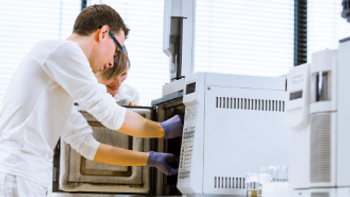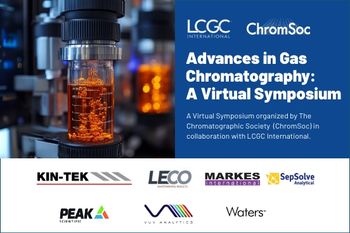
Magnetic Nanoparticles Unlock Efficient and Selective Separation of Anthraquinones
Scientists achieve a breakthrough in separation techniques with the development of alizarin-modified iron oxide magnetic nanoparticles, enabling highly efficient and selective separation of anthraquinones from complex plant extracts.
Scientists at Tianjin University of Traditional Chinese Medicine in China have made a significant breakthrough in the separation of anthraquinones, compounds with diverse biological activities, using innovative alizarin-modified iron oxide magnetic nanoparticles. The findings of this study, led by Xiaohui Yan, were published in the Journal of Chromatography A (1).
Anthraquinones, commonly found in higher plants, exhibit a wide range of biological properties. However, the conventional methods for isolating anthraquinones from plant crude extracts involve complex procedures such as multiple extractions, concentration, and column chromatography. Seeking a more efficient approach, the researchers synthesized three types of alizarin-modified Fe3O4 nanoparticles: Fe3O4@AZ, Fe3O4@SiO2-AZ, and Fe3O4@SiO2-PEI-AZ, using a thermal solubilization method.
Among the nanoparticles, Fe3O4@SiO2-PEI-AZ demonstrated remarkable characteristics such as strong magnetic responsiveness, high dispersion in methanol:water, excellent recyclability, and a high loading capacity for anthraquinones. To assess its efficacy in separating aromatic compounds, molecular dynamics simulations were employed to predict the adsorption and desorption effects of PEI-AZ on various aromatic compounds in different methanol concentrations. The results revealed that by adjusting the methanol:water ratio, efficient separation of anthraquinones from monocyclic and bicyclic aromatic compounds could be achieved using various types of chromatography.
Subsequently, the Fe3O4@SiO2-PEI-AZ nanoparticles were applied to separate anthraquinones from a rhubarb extract. At a methanol concentration of 5%, all the anthraquinones were effectively adsorbed by the nanoparticles, enabling their separation from other components present in the crude extract. This novel adsorption method offers numerous advantages over conventional separation techniques, including high adsorption specificity, simplicity in operation, and significant solvent savings.
The successful application of functionalized Fe3O4 magnetic nanoparticles in selectively separating desired components from complex plant and microbial crude extracts opens up new possibilities for future research and industrial applications. The development of these magnetic nanoparticles represents a promising advancement in the field of chromatography, offering a convenient and efficient approach to the isolation of valuable compounds.
The findings of this study contribute to the ongoing efforts in improving separation techniques, enhancing the efficiency of compound isolation, and promoting the development of innovative methodologies in natural product chemistry and pharmaceutical research. Further investigations and optimizations based on this approach may lead to advancements in various fields where selective separation and purification of complex mixtures are required.
Reference
(1) Li, Y.; Zhang, J.; Zhang, C.; Dang, W.; Xue, L.; Liu, H.; Cheng, H.; Yan, X. Facile and selective separation of anthraquinones by alizarin-modified iron oxide magnetic nanoparticles. J. Chromatogr. A 2023, 1702, 464088. DOI:
Newsletter
Join the global community of analytical scientists who trust LCGC for insights on the latest techniques, trends, and expert solutions in chromatography.




